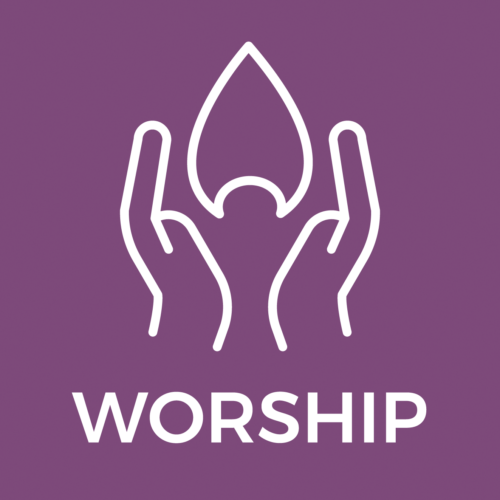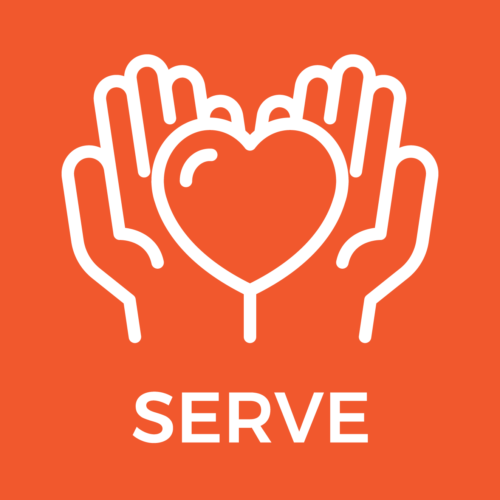What to Expect
We hope you’ll visit us on a Sunday morning or two to learn more about our dynamic worship, our diverse community, and our work in the world. We understand that visiting a new religious community can be intimidating. Below you’ll find answers to the the questions we hear the most:
We gather in-person and virtually at 10:00 AM on Sunday. Gathering hymns begin five minutes before. Greeters will be available to answers any questions you might have. Give yourself extra time to park if you drive as Sunday is a busy day with another church nearby.
Though each Sunday is a little different, each service begins with music (gathering hymns). The liturgist will welcome us all and invite us to greet each other. We’ll have more music, sometimes a story for all ages. Our offering is collected with live music before a time of prayer and mediation, followed by a reading or two. An anthem will lead us into the sermon then closing hymn and a benediction. Anything that is recited together will be shown for all to read together.
Come as you are! Some of our congregants might wear their Sunday best on high holidays and others show up in jeans and T-shirt. Be yourself and be comfortable. Children should wear comfortable play clothes as activities can sometimes get messy.
No. We do collect an offering during the service to maintain the congregation and support a local cause or organization. (See more about Sharing Our Riches.) We appreciate anything you’d like to give but it is not mandatory.
- Our multi-age Religious Education (RE) Program Activity Groups meet in person almost every Sunday from 10:00 AM to 11:00 AM and run at the same time as our Worship Service. Ask a greeter for directions to the classrooms. You’re welcome to keep your child with you. There are reserved areas in the Narthex and Sanctuary for families with young children. For more information, visit the family ministries pages.
- Our UU Youth Group (U-YG), comprised of 9th through 12th graders, meets every 1st Sunday at 11:00 AM and as needed when to check-in and select volunteer roles.
- We have three All Ages Children and Youth Circle events (formerly Children’s Chapel), per Religious Education program year.
- Nursery Care is available every Sunday at 9:45am.
We strive for Beloved Community. We welcome all who enter, regardless of race, color, religious background, gender, affectional (the classification of the sex or gender with which a person experiences romantic attraction towards or is likely to have a romantic relationship with) or sexual orientation, age, abilities or limitations, national origin, or marital status. We are interracial and interreligious couples, mixed-race children and adults, LGBTQ people, and folks of all ages. We are humanists, atheists, agnostics, pagans, Christians, Jews, Muslims, and Hindus. Whoever you are, you are welcome to bring your full self here.
Of course! We welcome all. The ramped entrance will lead you to the sanctuary and Unity Gallery. Elevators are available to the annex rooms and Fletcher hall. There is also a ramp entrance into Fletcher Hall. Large print orders of service and hymnals are available. Assistive listening devices are available in the Narthex. Please ask a greeter for assistance. If you or your child have a unique special need, you may want to let us know in advance how best to accommodate you.
You are welcome to wear a mask but you are not required to wear a mask. Some attendees will be wearing masks and others will not.
What is Unitarian Universalism?
Unitarian Universalism is not attached to particular beliefs; rather it is committed to specific work—striking a balance between openness to differing viewpoints on one hand and fierce advocacy of shared ethical claims on the other. This leads to rich, complex, imperfect, and collective struggles to balance these goals while building diverse and supportive communities.
Unitarian Universalists have no set creed, but we do affirm eight shared Principles. If you join in fellowship with Unitarian Universalism, you can hold any opinion you want about the existence of a god and what to call that god. You can change your opinion over time. You can follow your conscience, your readings, your thoughts, and your desires on issues like the existence of an afterlife, the idea of sin, the value of prayer, or the authority of religious texts. Among our congregations, you will find many different worship styles: raucous and religious, contemplative and nature-based, intellectual and secular. You can pray or not, sing in the choir or mumble the hymns, rush out after service or help brew the coffee, collect the canned goods or organize the field trip, pass out a petition or let the petition pass you by, dress casually for services or don your finest attire. Having set aside divisive doctrinal battles we seek a straightforward commitment to the fluid, open, collective work of seeking our truths together without assuming that we will all share the same truth.
Sound easy? It is not. But it is deeply rewarding. The Eight Principles are simple to state but challenging to implement. Building a truly expansive intellectual, ethical, and cultural community is not for the faint of heart. In this way, the dogma of Unitarian Universalism is procedural rather than theological. We are committed to being together and to being together in ways that respect our Principles. Our worship and our work exist in finding practical and nurturing ways to govern ourselves and our congregations by living out our commitment to openness, democratic process, human equality, social justice, and personal exploration without harsh judgment.
We keep going even when the work is hard and the outcomes are uncertain. Our faith as Unitarian Universalists is not a specific claim about a particular god. It is not found in a single book. It does not rely on claims of our inherent specialness as individuals or as a people. Our faith is messier. Our faith is a belief that we can embrace the common good through how we interact with one another by holding fast to our precepts of inclusion, participation, and nonjudgmental disagreement. Our faith is a practice of intellectual humility, reminding us of our own limitations. Our faith assures us that we are not alone and that we can be part of something greater than ourselves.
The journey is the joy. The companions are the comfort.
The work is the faith.
Adapted from Melissa Harris-Perry’s foreword to Unitarian Universalist Pocket Guide, Rev. Susan Frederick-Gray, editor; 6th edition.





